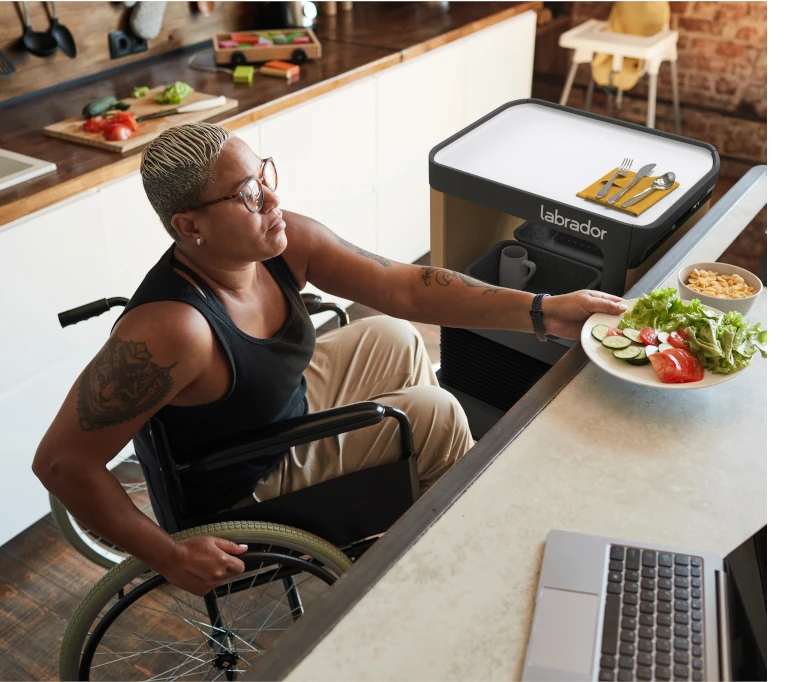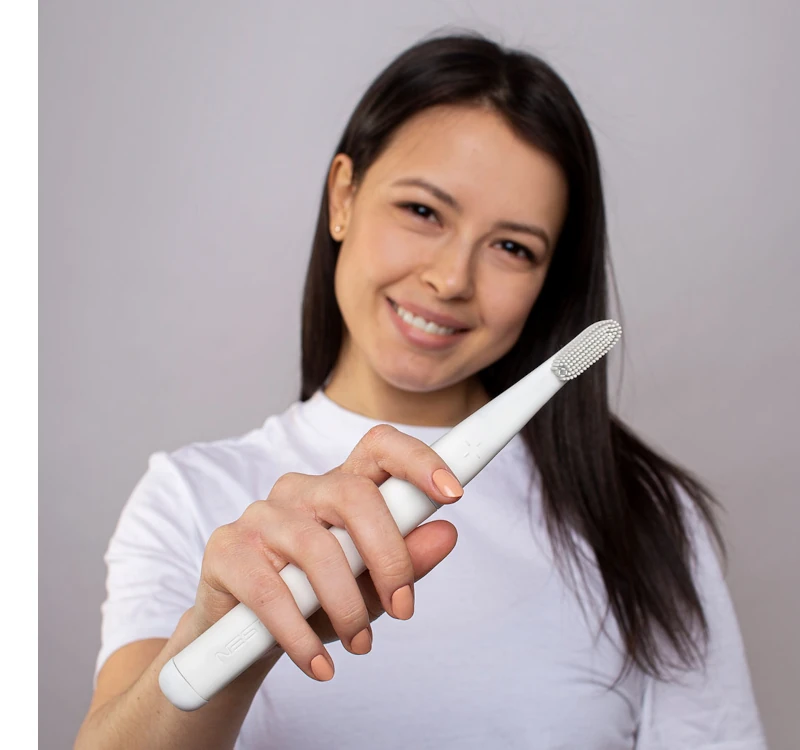The big prosthetic debut of last January’s Computer Electronics Show was the Esper Bionic Hand; by the end of the year it had made the cover of Time Magazine. Two years earlier, BrainCo’s robotic hand (then called Dexus) generated enough buzz to merit its own best-new-tech mention in Time, while scoring features in the Washington Post and elsewhere. The year before that, Unlimited Tomorrow unveiled its TrueLimb prototype at CES and went on to reap a bumper publicity harvest.
No comparable upper-limb launches took place at CES 2023, although Psyonic was in the house to showcase its Ability Hand (which has been on the market for about a year). But last week’s show still featured plenty of up-and-coming gear that holds interest for limb-different consumers and might become available soonish. We didn’t attend in person, but we might as well have for all the videos we consumed on TikTok, YouTube, and other social media. Here’s the most interesting stuff we saw, presented in no particular order.

Labrador Retriever
Developed in close collaboration with Amazon and AARP, this utility cabinet on wheels (aka “assistive robot”) helps mobility-challenged consumers with everyday household tasks. You issue directions through the Echo speaker (there’s the Amazon tie-in), and it rolls to your kitchen, office, clothes closet, mud room, or other in-home destination and fetches whatever you need. Designed both for senior consumers (as the AARP partnership attests) and people with disabilities, Labrador will be sold initially to independent-living facilities and health-care institutions. The individual, at-home version is expected to hit the market some time in 2024. Info at labradorsystems.com.
German Bionic Apogee Exoskeleton
Although this particular model is designed to assist four-limbed personnel who lift heavy objects all day, we include it here because a) it uses much of the same technology that’s being built into amputee-facing exoskeleton prototypes, and b) it got a ton of attention and won a CES Best in Tech Innovation award for wearable tech. Exoskeletons had a relatively heavy presence at CES 2023; another noteworthy exhibitor, Biomotum, specializes in mobility-oriented lower-limb exoskeletons. Learn more about the latter at biomotum.com; visit German Bionic at germanbionic.com/en.
Project Leonardo
The first accessible game controller for the PlayStation platform, Project Leonardo drew Best-of-CES mentions from Engadget, TechCrunch, The Verge, and Digital Trends, among others. Designed in partnership with AbleGamers and other leaders in the adaptive-gaming world, it’s plug-and-play compatible with the most current PlayStation console (PS5) and can be customized to suit players with limb difference and a wide range of other physical and neurological disabilities. No release date has been set; watch for updates at blog.playstation.com.
Beeyonder
Amplitude has featured this amputee-owned virtual-travel company before, and we’re pleased to report that they’re growing like crazy. The entire industry is growing like crazy, in fact, thanks in no small part to the interruption of in-person tourism during the pandemic. Originally meant to make hard-to-reach destinations accessible to people with disabilities, the Beeyonder platform is now a major player in a burgeoning global marketplace. Founder Brittany Palmer (a bilateral amputee) says the company grew by a factor of 12 in 2022, while attracting a few million bucks in capital investment. Check them out at beeyonder.com.

Nest Self-dispensing Toothbrush
Although not specifically designed for the adaptive market, this appealing product is perfect for anyone who maintains their hygiene one-handed. You store the paste in the brush’s handle, and it pops up through the bristles when you activate the device. Lots of boring old able-bodieds want this thing for their travel kits. The product attracted nearly $200,000 in seed money on Kickstarter and Indiegogo just over 18 months ago, hard on the heels of a high-profile wins in the prestigious iF Design and Red Dot competitions. And there’s no wait for this item to hit the market; it’s already available and retails for $80. Get it online at nestoralcare.com.
Allimb Virtual Fitness App
This AI-enabled app stands in for your rehab doctor, physical therapist, and/or fitness trainer when you’re working out at home. Using your smartphone camera, the app monitors your movements during exercise, corrects errors that might lead to injury, and provides provides real-time encouragement to keep you from quitting. It also records everything, so you can go over it with your care provider later. “Studies show that without supervision, patients don’t stick to the exercises they need to do at home,” says Allimb CTO Lawrence Spavieri, who developed the app while rehabbing from a painful back injury. The three-year-old company’s still looking for funding, and there’s no timeline for marketplace entry yet. More info at allimb.com.




